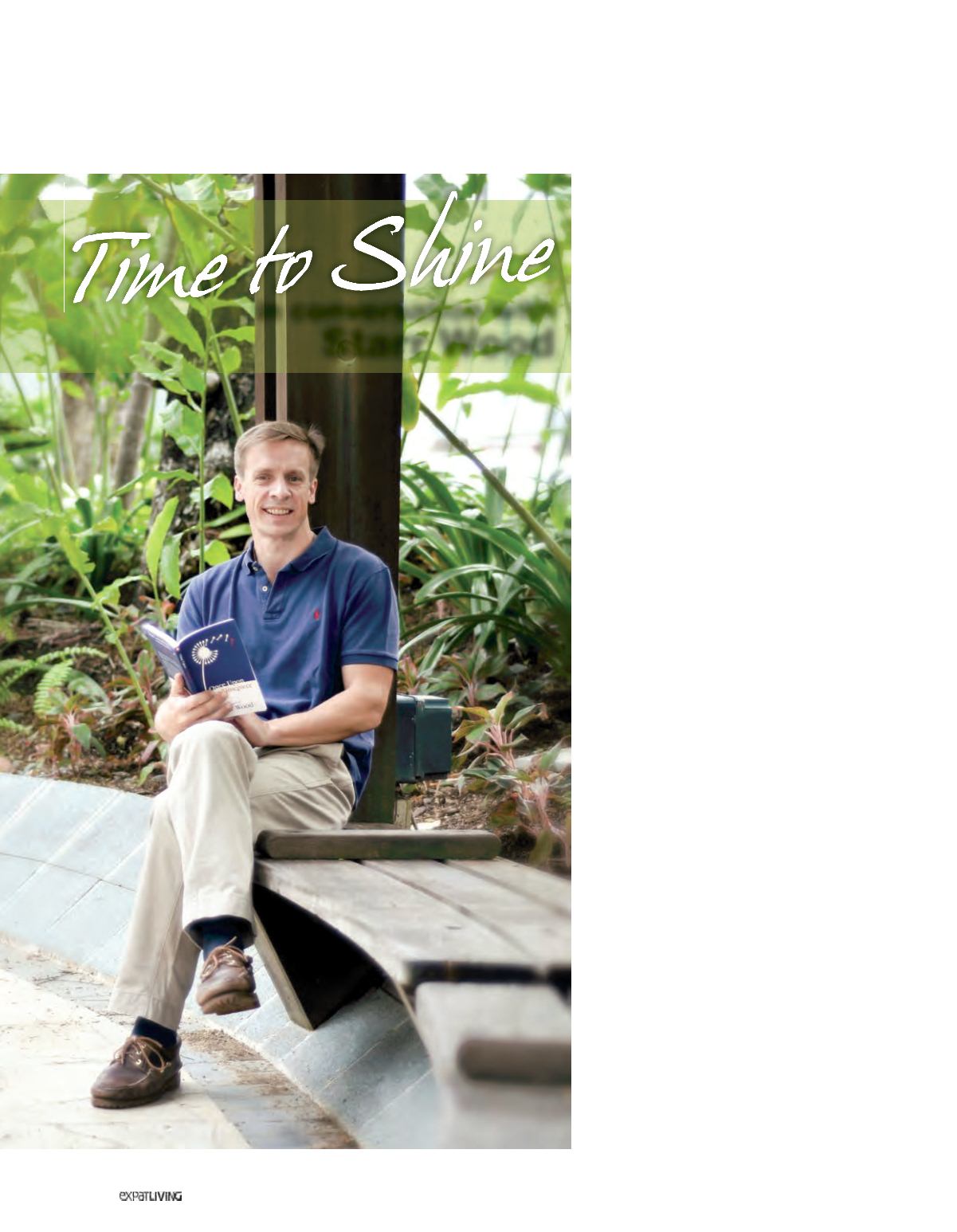

ARTS&LEISURE
200
October14
Verne Maree
cha t s w i t h
Singapore-based author STARR
WOOD about his stunning debut
novel,
Once Upon a Timepiece
,
how he came to be a published
writer, and where he got such a
fabulous name.
What appeals to you about short
stories, and why do you think
they’ve become so popular again?
I find the form fascinating. Different
from the novel, it’s a very natural form
of human communication: the story
told around a table, or a campfire. It
has a sort of brevity and conciseness
that reflects how humans communicate
anecdotes about their real lives, how
they describe their world, and I find that
very satisfying.
Also satisfying is the discipline required.
The compression that comes with
strippingout everything that’s not essential
makes the short story a very potent way
of expressing thoughts and ideas – more
powerful, in someways, than longer forms
of fiction. Manywriters regard short stories
as the most difficult to write.
Various theories have been put
forward to explain the resurgent
popularity of the short story form. One
is the proliferation of writing courses,
which encourage people to write short
stories as a way of learning the craft.
Another is the growing number of
competitions, for which the prizes are
becoming richer.
What does one call the form
of Once Upon a Timepiece – a
novel comprising a collection of
short stories – and howunusual is it?
It’s a “short story cycle”, a book of short
stories that are all linked in some way.
While it has been done before, it hasn’t
been done a lot. Typically, an author
might write a set of stories that describe
a community, with each story told from
the perspective of a different character
living in that community. James Joyce’s
Dubliners
is a great example.
My book is unusual in that the people
and their stories are all linked by a thing,
the watch, rather than by a community;
in conversation with
Starr Wood



















